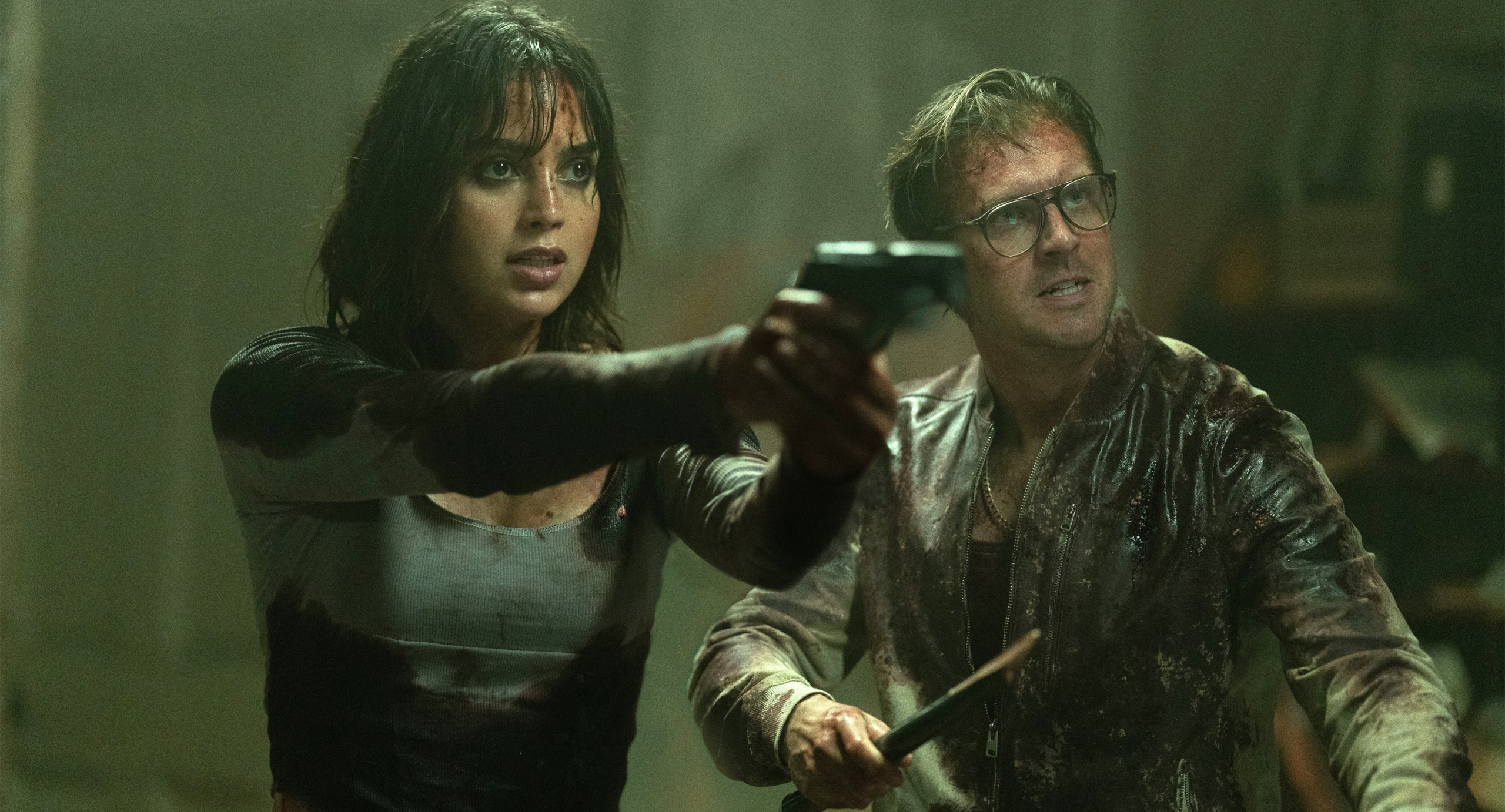Abigail – Film Review
Published April 20, 2024

It’s no secret that there is a slew of vampire films in Hollywood and in the horror genre in general. However, when it comes to Matt Bettinelli-Olpin and Tyler Gillett‘s Abigail, I can wholeheartedly say that I have never seen a horror film quite like this one in my life.
Abigail plunges audiences into a captivating vortex where classic horror intertwines with fresh narrative ingenuity, casting a new light on the timeless lore of vampirism. Directed with a sleek, confident hand by Bettinelli-Olpin and Gillett, and penned with meticulous attention to detail by Stephen Shields and Guy Busick, this film stands as a compelling reimagining of the 1936 Universal Classic Monsters film Dracula’s Daughter. It weaves an intricate tale of deceit, desperation, and the darker corners of human (and inhuman) nature. At the heart of this chilling narrative is Alisha Weir as Abigail, the enigmatic daughter of Count Dracula, who brings a nuanced and riveting performance to the titular role.
The plot, a meticulously crafted suspense-thriller, positions six criminals in a gothic mansion with a deceptively simple task: to ensure the safety of Abigail. The ensemble cast, including Melissa Barrera as Joey, Dan Stevens as Frank, and Kathryn Newton as Sammy, delivers a power-packed performance, with each character bringing their unique traits and tumultuous backstories to the fore. This narrative choice to focus on characters with questionable pasts trapped in a high-stakes situation with an unearthly entity forms the crux of the film’s allure.
From the outset, Abigail plays like a classic horror setup infused with modern twists and moral complexities. The group, using Rat Pack aliases, is kept on edge in the claustrophobic setting of the mansion, creating an atmosphere ripe with tension and foreboding. The filmmakers skilfully play with genre conventions, balancing the expected tropes with unpredictable developments that keep viewers on their toes. As the night unfolds, the mansion reveals its bloody secrets, and Abigail’s true nature emerges, leading to a chaotic fight for survival.
The horror in Abigail is sophisticated and multilayered, avoiding gratuitous gore in favor of psychological terror and atmospheric tension. Cinematographer Aaron Morton crafts hauntingly beautiful visuals that contrast the mansion’s opulent decay with the stark, ruthless reality of the situation. The production design is impeccable, transforming the setting into a character in its own right – a labyrinthine trap that mirrors the characters’ internal conflicts.
As for the titular character, her complexity adds a poignant layer to the narrative, making the film not just a tale of survival, but a commentary on identity, freedom, and the burdens of legacy.
The score, by composer Brian Tyler, further elevates the film’s atmosphere, weaving a sonic tapestry that ranges from subtle unease to heart-pounding terror. Each musical cue is meticulously crafted to enhance the narrative’s mood, underscoring the film’s thematic depth and enhancing its suspenseful moments.
Performance-wise, the cast delivers with every actor bringing depth to their roles. Melissa Barrera’s Joey is a compelling protagonist, embodying strength and vulnerability in equal measure. Dan Stevens as Frank brings a nuanced portrayal of a man torn between his past demons and the monstrous future that awaits him. Kathryn Newton and the rest of the supporting cast deliver solid performances that flesh out the story’s moral complexities and emotional weight.
However, Abigail isn’t without its flaws. Certain plot developments feel slightly contrived, and a few character decisions may challenge the suspension of disbelief. Yet, these are minor quibbles in what is otherwise a masterfully executed film.
It’s a film that respects its roots while daring to innovate, delivering a haunting, thought-provoking experience that lingers long after the credits roll. With its blend of stellar performances, masterful direction, and a tightly woven script, Abigail earns its place as a modern horror classic, captivating audiences with its twisted sense of humor, emotional undercurrent, and the search for light in the darkest of places. This film is a must-watch for fans of the genre and cinephiles alike, marking a noteworthy addition to the legacy of vampire cinema.
